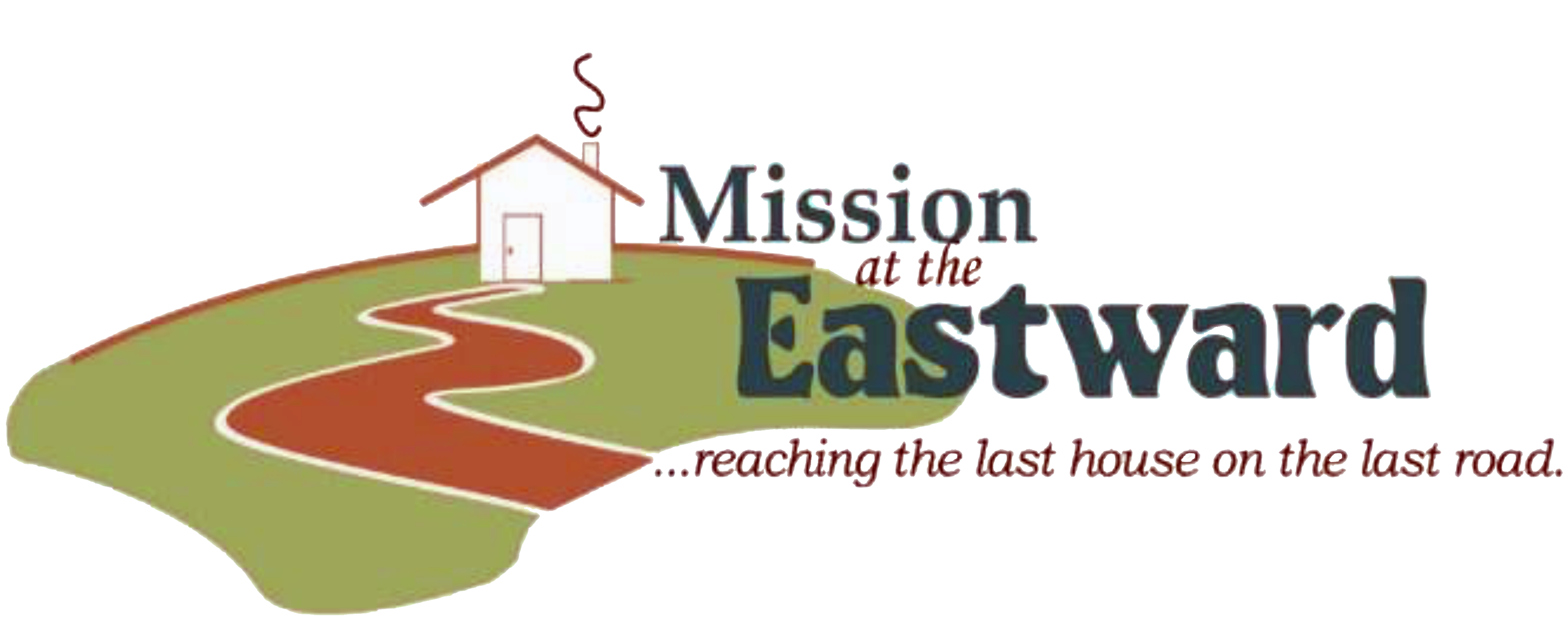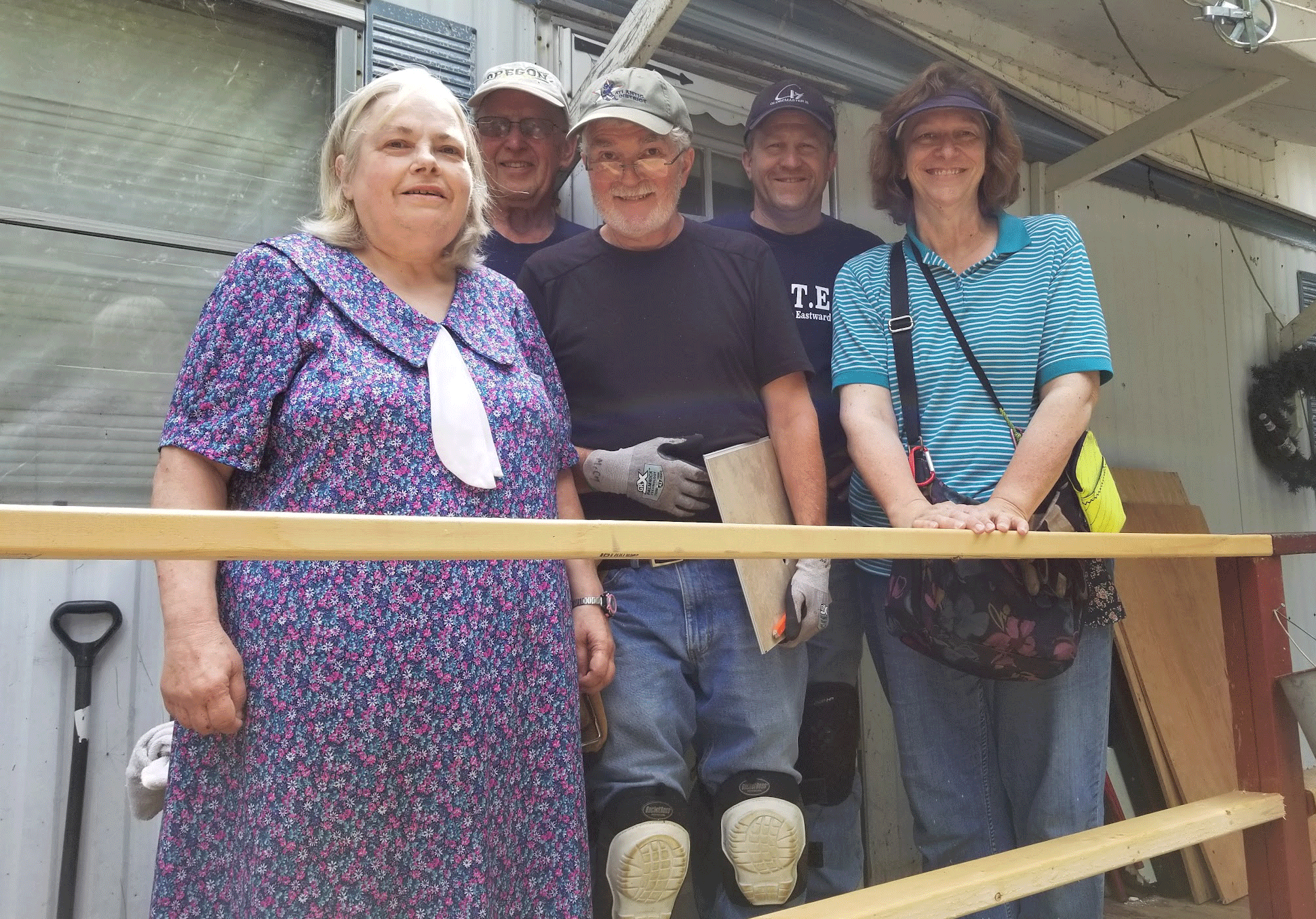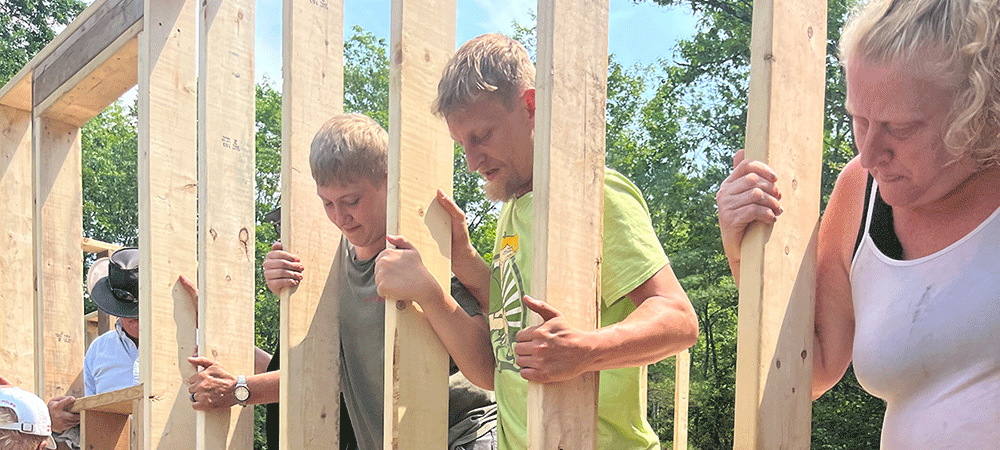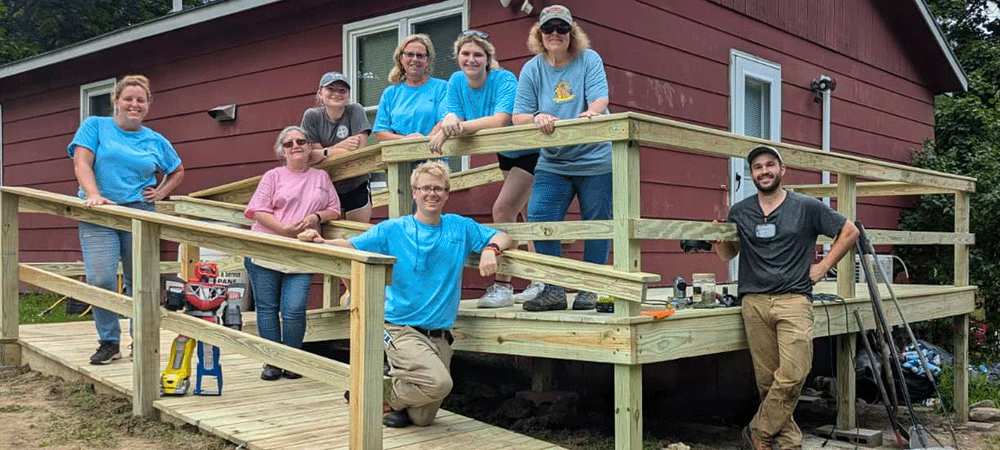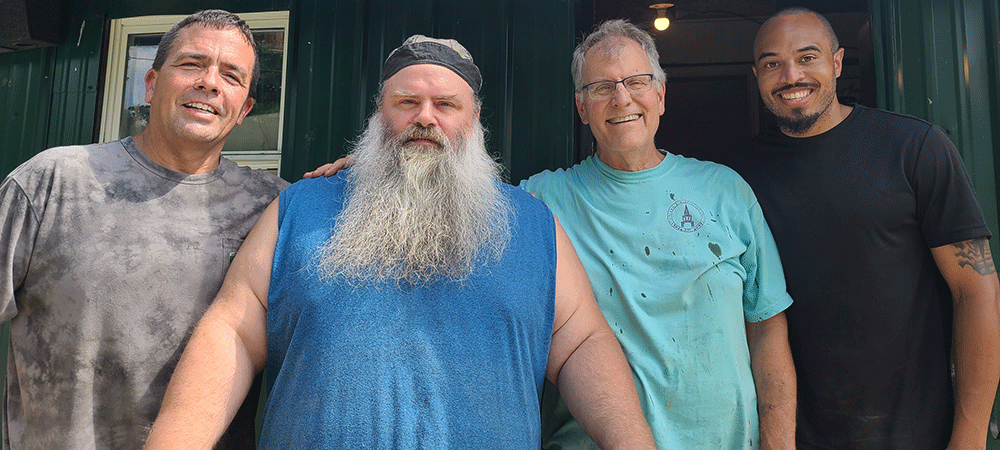2025 PNNE SERVICE TRIP
Join Us in Mission!

Do you or your church want to experience a service trip but just don’t know where to start?
Join us for a PNNE-wide service trip in 2025 to conduct volunteer home repairs for individuals and families and the elderly!
PNNE-wide collective service trip to conduct volunteer home repairs for our neighbors experiencing housing insecurtiy in Maine.
July 26th – August 2nd, 2025
Farmington, Maine.
Individuals or small groups from churches throughout the Presbytery will join a VERY experienced MATE church partner, Bedford Presbyterian Church (NH), to learn the ins-and-outs about how to plan a service trip to MATE and what occurs on-the-ground while in Maine on Mission, both on the job-site and off.
NO EXPERIENCE NEEDED!!!
Just a willingness to learn, an open heart, and an eagerness to connect with fellow volunteers and homeowners experiencing housing insecurity in rural Maine communities.
Homeowner Testimonials
George Reese
Beford Presbyterian Church Workgroup Leader
For more information or to sign-up for the trip, please contact the Bedford Presbyterian Church workgroup leader, George Reese, at:
Why Should You Take a Service Trip to Conduct Volunteer Home Repairs?
Taking a volunteer service trip to conduct home repairs for low-income individuals and families is a powerful way to positively impact communities while also offering meaningful benefits to the volunteers themselves. Here’s why it is important and beneficial for both the recipients and the volunteers:
Benefits for Low-Income Individuals and Families:
Improved Quality of Life: Home repairs provide tangible improvements to living conditions. For low-income families, making essential repairs that they cannot afford, such as fixing leaky roofs, repairing unsafe wiring, or improving insulation, can significantly enhance safety, health, and comfort.
Increased Safety: Many low-income households live in unsafe conditions due to the high cost of maintenance. Volunteer repairs can help mitigate hazards like mold, electrical issues, or structural damage, preventing accidents or health problems.
Building Relationships: Homeowners often form lasting bonds with the volunteers, providing emotional rewards and friendships that extend beyond the duration of the project.
Sense of Dignity: Living in a safe, functional home can restore a sense of pride and dignity for families. It allows them to focus on other areas of their lives, like education, employment, or family, rather than worrying about deteriorating living conditions.
Financial Relief: Home repairs are often prohibitively expensive for low-income households. By providing these services for free, volunteers offer financial relief, allowing families to use their limited resources for other essential needs such as food, education, or healthcare.
Community Strengthening: Volunteer efforts strengthen the community by improving housing stock and helping neighbors in need. This can foster a sense of unity and interconnectedness, as well as inspire others to contribute to communal well-being.
Benefits for Volunteers:
Personal Growth: Volunteering exposes individuals to new experiences and challenges, leading to personal development. It provides an opportunity to learn new skills, whether it’s construction, teamwork, or problem-solving, that can be valuable in both personal and professional life.
Sense of Fulfillment: Making a tangible difference in someone’s life can bring a profound sense of satisfaction. Knowing that their time and efforts directly contributed to improving another person’s life can foster a deep sense of purpose and fulfillment in volunteers.
Empathy and Awareness: Volunteering in low-income communities increases awareness of social and economic disparities, fostering empathy. This awareness can inspire volunteers to be more active in social justice causes, advocate for policy changes, or continue their involvement in charitable work.
Building Relationships: Volunteers often form lasting bonds with the families they help and their fellow volunteers. These relationships can broaden perspectives, strengthen communities, and provide emotional rewards that extend beyond the duration of the project.
Physical and Mental Health Benefits: Numerous studies suggest that volunteering can improve mental health by reducing stress and increasing happiness. The physical activity involved in repair work, combined with the positive emotions associated with giving back, contributes to overall well-being.
Skill Development: Many volunteers gain hands-on experience with construction or repair work, improving their problem-solving, project management, and technical skills. This can be valuable not only for personal development but also for future career opportunities.
Long-Term Impact:
The ripple effect of these volunteer efforts can be profound. For the families, safe, secure housing offers stability and hope for the future, breaking cycles of poverty and hardship. For volunteers, the experience often ignites a deeper commitment to service and a lasting connection to the communities they serve.
In sum, volunteer service trips to conduct home repairs benefit everyone involved by providing essential resources to vulnerable populations while offering volunteers a powerful, transformative experience that enriches their lives and fosters community solidarity.
